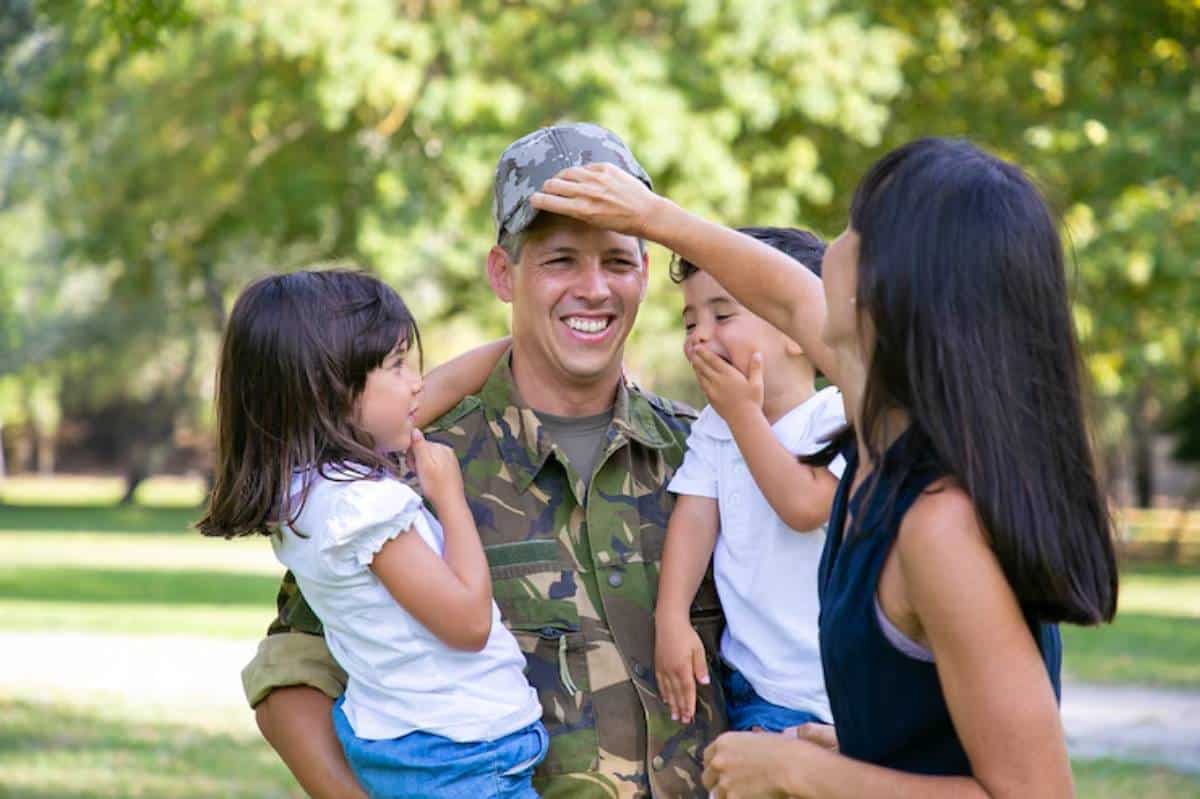
Scholarships for Veterans and Military Families: A Guide to Education Funding After Service
From Service to Scholarship — Your Next Mission Starts Here
Transitioning from military life to higher education is a bold and empowering step. Whether you’re a veteran looking to upskill for civilian employment, a current service member planning for the future, or a family member supporting someone in uniform, education can open doors to opportunity, stability, and growth.
But let’s be honest: university is expensive. And the civilian world? It’s full of acronyms, applications, and unfamiliar red tape. That’s where military scholarships and veterans’ education aid come in. These programmes exist to support the people who’ve served — and their families — by removing financial barriers and honouring your commitment with practical, powerful support.
In this post, you’ll discover scholarships tailored specifically for veterans, active-duty service members, spouses, and children of military personnel. You’ll learn where to find them, how to apply, and what to expect along the way. And you’ll hear real stories from service families who’ve made the leap — and landed strong.
Let’s get started — your next chapter begins here.
Why Scholarships for Veterans and Military Families Matter

1. Transitioning Takes Time and Resources
Leaving the military means adjusting to a new culture, system, and sometimes identity. Education is one way to bridge that gap, but it comes at a cost — not just financial, but emotional and logistical. Scholarships help reduce that burden.
2. Recognition for Service and Sacrifice
Education funding acknowledges the service you’ve already given and helps repay it with opportunities that equip you for what comes next. For family members, it’s a thank-you for the silent strength and support they provide.
3. Tailored Support for Unique Needs
Unlike generic student aid, scholarships for service families often include wraparound support — mentoring, career advice, flexible learning, and even family-friendly accommodations.
Who Is Eligible for Military-Linked Scholarships?

You might qualify for veterans’ education aid or a military scholarship if you are:
- A military veteran (honourably discharged, typically with at least 90 days of active duty)
- A currently serving member of the Armed Forces
- A reservist or member of the National Guard
- A spouse or partner of someone in the Armed Forces
- A dependent child (biological, adopted, or stepchild) of a military service member
- A Gold Star family member (i.e., lost a loved one in active duty)
Always read the eligibility criteria carefully — some awards may be specific to branch, rank, service era, or field of study.
Top Scholarships for Veterans and Military Families
Let’s explore the best-known and most effective funding opportunities for UK-based and international service families.
UK-Based Military Scholarships
1. Royal British Legion Bursaries and Scholarships
- Who it’s for: Ex-serving personnel and their dependents
- Award: Varies by programme — covers tuition, training, or vocational education
- Bonus: Welfare and grants for emergencies and equipment
2. Armed Forces Bereavement Scholarship Scheme (AFBSS)
- Who it’s for: Children of service personnel who died in active service after 1990
- Award: Full funding for tuition and living costs at UK universities
- Administered by: The Ministry of Defence
3. The Forces Children’s Trust
- Who it’s for: Children of service personnel killed or injured on duty
- Award: Educational bursaries, activity funding, and mentorship
- Focus: Long-term educational and emotional support
4. The Royal Navy and Royal Marines Charity Education Fund
- Who it’s for: Children and spouses of serving or retired RN/RM personnel
- Award: Bursaries for further and higher education
- Includes: Support for university fees, laptops, travel, and books
International Scholarships (Including the UK)
5. Pat Tillman Foundation Scholarship
- Who it’s for: Veterans and military spouses
- Award: Up to $40,000 over multiple years
- Bonus: Leadership development, alumni network
6. Tillman Scholar UK Programme (Pilot)
- Who it’s for: UK veterans studying in the US or with transatlantic connections
- Status: Emerging partnerships — monitor for updates
- Note: Designed to expand globally beyond the US
7. Help for Heroes Education Recovery Grants
- Who it’s for: Wounded, injured, or sick veterans from the UK service branches
- Award: Covers courses, certifications, or university education
- Bonus: Includes career coaching and transition support
8. The Army Benevolent Fund (ABF The Soldiers’ Charity)
- Who it’s for: Serving soldiers, veterans, and their families
- Award: Grants for education, vocational training, and resettlement
- Note: Partnered with other charities for streamlined access
Where Else to Find Military Scholarship Opportunities

- Veterans’ support centres at your university
- Armed Forces Education Trust
- Military branch charities (e.g. SSAFA, RAF Benevolent Fund, Naval Families Federation)
- Councils and local charities – Some regions offer educational grants for service families
- Military spouses’ networks – Online and offline communities often share exclusive leads
Don’t stop at scholarships — explore bursaries, hardship grants, and flexible learning support too.
How to Apply Successfully: Tips for Service-Linked Scholarships
1. Tell Your Story — Honestly and Powerfully
Military life is unique. Use your application to reflect:
- What service meant to you or your family
- What challenges you faced — deployments, relocations, loss
- How that experience shaped your goals
You’re not just asking for money — you’re showing purpose.
2. Demonstrate Adaptability and Leadership
Veterans often have transferable skills: discipline, teamwork, resilience, and strategic thinking. Highlight how you’ve used these in civilian education or work settings.
For family members, leadership might look like managing school through deployments or supporting siblings.
3. Secure Personal and Military References
Depending on the scholarship, you may be asked to submit:
- Proof of service (MOD Form 90, discharge papers, etc.)
- Character references from commanding officers, supervisors, or academic mentors
- A service member’s death certificate (for bereavement awards)
Check document requirements early — some take time to obtain.
4. Start Early and Track Every Deadline
Many scholarships run on a yearly cycle and have strict submission dates. Use a spreadsheet or calendar to track:
- Deadlines
- Required documents
- Essay drafts
- Contact info for referees
Set reminders and apply well before cut-offs — especially if documents must be posted.
5. Ask for Help — You’ve Earned It
Whether it’s a student adviser, charity worker, or peer mentor, don’t be afraid to reach out. You’re navigating a system that wasn’t built for service members, but it’s one you deserve to access fully.
Real Stories: From Boots to Books
Paul, Royal Navy Veteran, MSc Student
Paul retired after 22 years of service and wanted to study marine engineering. Through the RNRMC Education Fund and a local bursary, he covered his tuition and bought equipment.
“I thought I’d aged out of opportunities like this. Turns out, there are people out there ready to support your next mission.”
Sarah, Military Spouse, Business Management
Sarah moved five times in seven years, raising two children while her partner served abroad. When she finally had a stable post, she applied for a Forces Family Education Grant.
“It wasn’t just financial help — it felt like someone saying, ‘We see you too.’”
Final Checklist: Your Military Scholarship Application Plan
- Confirm your eligibility and service connection
- Collect your documents early
- Draft a personal statement with clear goals
- Choose referees who know your story
- Submit ahead of the deadline and confirm receipt
- Follow up — and celebrate every application submitted
Conclusion: Your Service Has Value — And So Does Your Future
Military service shapes you, but it doesn’t define you. Whether you’re starting your first degree, retraining for a new career, or supporting your child into university, veterans’ education aid and scholarships for military families are here to help.
These scholarships are more than funding. They’re pathways to purpose, second chances, and well-deserved recognition. So don’t count yourself out — this isn’t the end of the line. It’s the beginning of something new.
Want a downloadable guide with the top scholarships and grant links for veterans and service families? Subscribe below and get it delivered directly to your inbox.
Are you part of a military family who’s applied for or received education funding? Share your experience in the comments — your story might inspire someone to take that first step.
Action step: Pick one scholarship from this list. Add the deadline to your calendar, request your documents, and start your application. You’ve already shown courage in service — now let that same courage guide your future.


